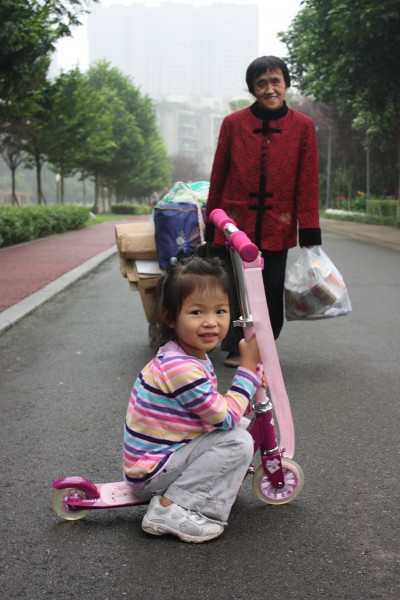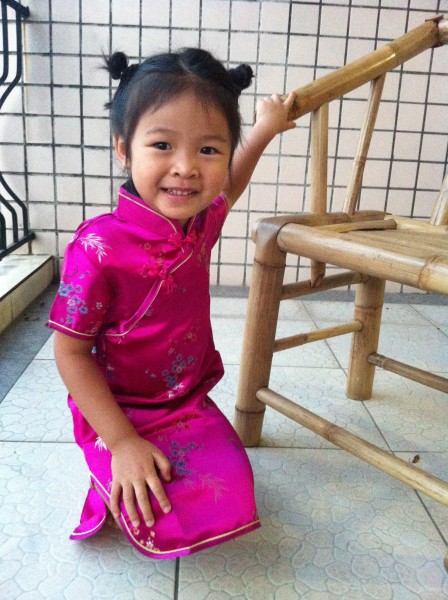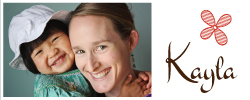Once we’ve had our adopted Chinese children home for a while, they become very American, don’t they? Fluent English speakers, pudgy and healthy, faces aglow. Video games, Kraft mac-n-cheese, Gap Kids clearance clothes, and all the rest.
But then there are moments when Jubilee will stop what she is doing and stare off into space, her mind a million light years away. Or a seemingly insignificant struggle might bring tears of deep anguish, and I’m pretty sure she is feeling something deeper than the disappointment of losing her favorite jar of nail polish.
One might figure things would be different for our family, since we live in our daughter’s home country. It is true, she has “her people” all around her. But still, she is growing up in our home, speaking our language, eating our food, and wearing our clothes. She won’t relearn her mother-tongue until she is old enough to join her brothers’ private tutoring sessions, which happen from 1:30-2:30, Wednesdays and Fridays.
She can see her previous world, but she can’t quite touch it. It is a very interesting dynamic.
And so we are in much the same boat as most of you. We are white Americans raising a Chinese child. Being a blended family, however, is far from a negative thing to be. It is an opportunity! A blessing! A chance to celebrate God’s creativity and taste for variety.
This gets sticky, though, because we don’t want to assume our adopted Chinese children want their “other-ness” celebrated. Many adoptees would rather fit in than stand out.
But many adoptees also want their loved ones to recognize their unique heritage, their great loss, and their need to know the blood that runs through their veins.
(even though all blood is red, but I digress)
Jubilee is incredibly aware for her age, and loves talking about her Chinese heritage. She is proud of the fact that she can wield chopsticks better than the rest of us, even though she didn’t learn this at the orphanage but picked it up at our table, just like that. She loves that she can memorize verses and facts like a computer (something that is very Chinese, by the way, if you’ve noticed your children having the same remarkable gift). She prefers indirect communication, and has a high need for physical contact. These traits, too, are prevalent among Chinese. Jubilee cannot wait until her Chinese language lessons can begin, and she begs me to read to her from our Chinese/English children’s books.
And then there is my cousin, Abbey. Adopted as a baby from Korea, she grew up in a white, middle class Midwestern family, happy as a lark. Her favorite food as a kid was chicken spaghetti. She took dance lessons, cheered exuberantly for her brothers at their football games, sang country western music, etc. And yet, as an adult adoptee, she wears a shirt that reads, “Asian soul.” She joined the Asian Student Union while in college, and just went to her first KAAN conference (Korean American Adoptive Family Network) with her mother, my wonderful aunt. I think my sweet cousin would suggest that we as adoptive parents learn to read our children, pray for insight into their hearts, and take their cues as to how “Chinese” they want us to help them be(come).
I personally love Chinese culture. I love eating the food, speaking the language, and making friends with the people. I think it would be very sad to pretend – or wish – the Chinese heritage out of our kids. Of course, the fact that they are Chinese does not make them any less ours (or less American, Canadian, or whatever your nationality might be), but I say if they want to be connected with their roots, more power to ’em. I propose that by denying who they were, we risk denying them – and ourselves – the pleasure of fully enjoying who they are.





























Thank you! I think you expressed it so well. It is a balance between what we want and what they need with respect to heritage and culture.
A beautiful testament to our calling… love your words of encouragement! AND I yearn to LIVE in China!!! Blessings!
So beautifully written. Thank you! “by denying who they were, we risk denying them – and ourselves – the pleasure of fully enjoying who they are.” I couldn’t agree more. Praying that God keeps me sensitive to our daughter’s needs/desires regarding her heritage. and that we will always strive to have respect for her native culture. God bless!! <